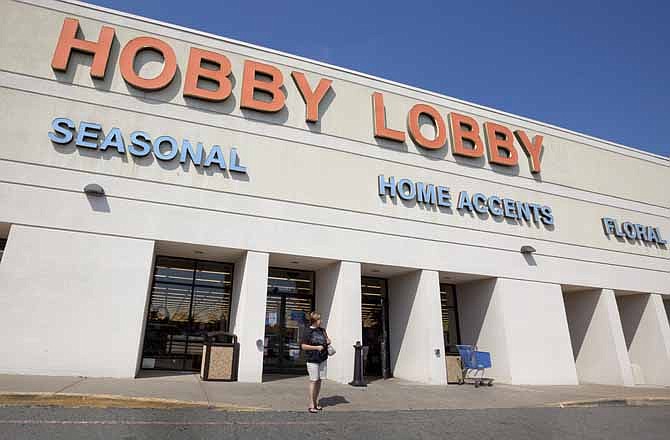OKLAHOMA CITY (AP) - Hobby Lobby Stores asked the U.S. Supreme Court on Friday to block part of the federal health care law that requires it to provide insurance coverage for the morning-after pill and similar emergency contraception pills.
Owned by a conservative Christian family, the arts-and-crafts company argues that the drugs are tantamount to abortion because they can prevent a fertilized egg from implanting in a woman's womb. Company officials say they must decide whether to violate their faith or face a daily $1.3 million fine beginning Jan. 1 if they ignore the law.
"They're going to have to make a hard decision they shouldn't have to make," said company attorney Kyle Duncan, general counsel for the Becket Fund for Religious Liberty.
"Hobby Lobby is very strong and steadfast in their beliefs," he added. "They are confident that the courts will act."
Oklahoma City-based Hobby Lobby is the largest business to file a lawsuit against the mandate. Founded in 1972, the company now operates more than 500 stores in 41 states and employs more than 13,000 full-time employees who are eligible for health insurance coverage. Hobby Lobby is self-insured.
The company filed a 36-page application with the nation's highest court seeking an emergency injunction to block a mandate that requires it to provide the morning-after pill and week-after pill in its employee health-care plans beginning Jan. 1. The company also objects to providing coverage for certain kinds of intrauterine devices.
Attorneys for the government have said the drugs do not cause abortions and that the U.S. has a compelling interest in mandating insurance coverage for them.
Hobby Lobby asked the Supreme Court to take up the case a day after a federal appeals court rejected the company's request. A U.S. District judge also turned down the company last month.
Hobby Lobby and a sister company, Mardel Inc., sued the government in September, claiming the mandate violates the religious beliefs of its owners, the Green family. Duncan has said members of the family run their businesses according to their religious faith, "and regularly engage in what can only be called exercises of religion."
Among other things, Hobby Lobby takes out hundreds of full-page ads every Christmas and Easter celebrating the religious nature of the holidays. Stores are closed on Sundays to give employees a day of rest, and the company excludes contraceptive devices and drugs that its owners maintain can cause abortion from its employee prescription drug coverage plan, according to the appeal.
In ruling against the companies last month, U.S. District Judge Joe Heaton said churches and other religious organizations have been granted constitutional protection from the birth-control provisions, but "Hobby Lobby and Mardel are not religious organizations."
Heaton recognized that the Green family has sincere religious beliefs, but the judge ruled that complying with the new health care guidelines creates only an indirect burden on Hobby Lobby's owners and it is not personal to them.
Critics of emergency contraception say it is the equivalent of an abortion pill because it can prevent a fertilized egg from attaching to the uterus. If taken within 72 hours of unprotected sex, the morning-after pill can reduce the chances of an egg implanting in a woman's womb by as much as 89 percent.
The company's lawsuit also alleges that certain kinds of intrauterine devices can destroy an embryo by preventing it from implanting in a woman's uterus.

